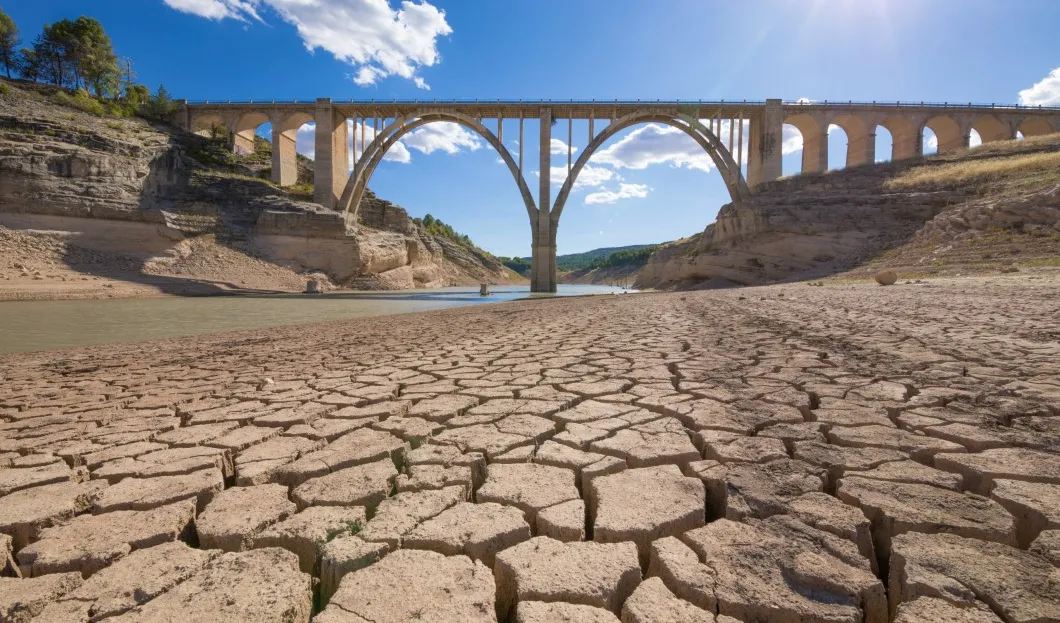
Climate change is having a stronger impact on Spain than in most European nations. Drinking water is scarce and coasts recede. Some experts in the country already see tourism at risk.
“If the temperature rises above the limits established in the Paris Agreement, there is a clear risk that Spain could become a desert like the Sahara,” said British economist Nicholas Stern, who already pointed out the consequences of climate change in his ‘Stern Review’ back in 2006 during a conference in San Sebastian.
While climate activist Greta Thunberg rallies the young in Spain, many wonder if the country's lawmakers have really paid attention to the importance of environmental protection and renewable energies for the southern European nation.
Thousands of migrants from Western Sahara risk their lives trying to cross the Strait of Gibraltar every year due to the high temperatures and drought in their countries of origin. This could happen soon in Andalusia, where most of the refugees arrive after surviving a long and perilous trip across the sea. The World Bank estimates that 80 million Africans will migrate to Europe in the coming years due to climate change. Because of its location and history, Spain is a focal point for many of these refugees.
Spain, a ‘green’ world power?
In the recent EuroMed 7 of the Mediterranean Group, the Spanish Prime Minister, Pedro Sanchez, said that his country had to promote the initiative in protecting Europe’s climate, which indicates that the rise in temperatures and strong winds already affect the most stable source of income in Spain: tourism.
Tourism in Spain continues to be the industry with the most job opportunities in Spain, a country that traditionally suffers from high structural unemployment. For the Government, it is clear that the tourism industry has to be supported in any possible way.
This is why Sanchez attended the climate change conference titled "Change the Change", held in San Sebastian earlier this year, to support the call for faster climate protection measures. “We have to be serious to reach our climate goals,” said Sanchez, who aims to lead the campaign against the climate crisis in Europe.
Sánchez intends to propose Teresa Ribera, his current Minister of Environment, for the position of vice president of the European Commission. Luis Merino, the editor of the magazine ‘Energías Renovables’ (‘Renewable Energies’), has recently praised Ribera for removing a tax on self-installed solar panels, arguing that the Minister has paved the way for new energy policy in the country.
At the moment, Spain still has to import 40 billion euros in gas and oil every year, mainly from Algeria and Saudi Arabia. In this context, Spain could save at least part of that money by boosting solar energy. The country has 3,000 hours of sunshine per year, and has many unused areas where solar parks (solar power stations) can be built, says José Carlos Díez, from the University of Alcalá, Madrid. “We produce a megawatt of solar power for 30 euros, in Germany and France you pay 40 euros for the same amount, and even 60 euros in Great Britain,” Díez explained.
Energy costs have great importance for tourism given that this industry, which is responsible for 15% of the country’s GDP, is one of the largest consumers of energy. The commercial aviation and cruise ship industries have increasingly become the target of criticism from environmental groups.

In 2018, Spain had a record number of tourists. For the sixth consecutive year, Spain has set a new arrival record for foreign tourists. Last year, 82.8 million international visitors visited the country, up 1.1% from 2017, according to new figures released by the National Institute of Statistics (INE). The figures show that tourism spending has increased at an even faster rate, for a total of nearly 89.9 billion euros, an increase of 3.3% compared to 2017.
The figures are close to the ideal situation sought by the government and tourism in Spain.
An increase in tourist spending but (according to the Spanish government), not enough arrivals to create saturation, a weakening of public services that could lead to local expressions of "phobia" of tourists.
A survey was conducted by the Ipsos Analysis Company for the World Tourism Organization (UNWTO). 64% of Spaniards believe that tourism plays a fundamental role in the creation of wealth and income and 59% believe that it facilitates cultural exchanges and creates jobs.
On the other hand, only 20% of Spaniards would be in favor of limiting the number of tourist establishments. Those who would like to reduce tourist arrivals would represent 18%. And those who would like to suppress the tourist promotion are 13%. 70% of respondents believe that measures to avoid over-tourism should focus on improving flow management.











Climate scientists have warned that heat waves like this are becoming more frequent and increasingly severe due to the climate crisis. Météo-France said that the frequency of such events is expected to double by 2050.